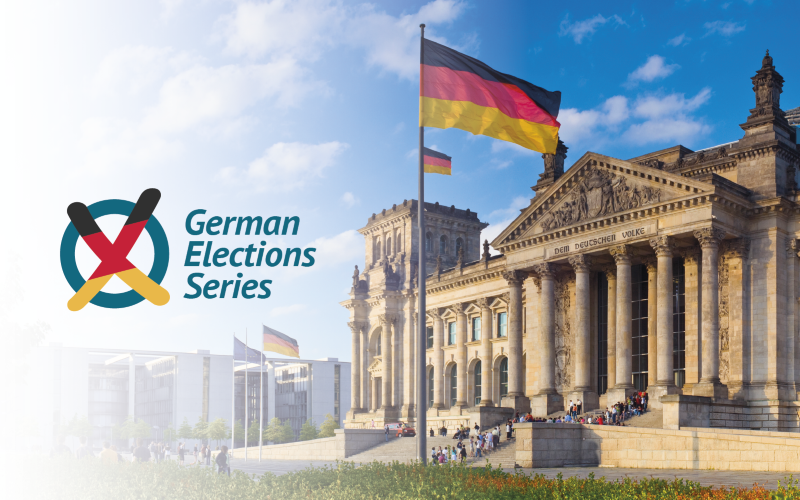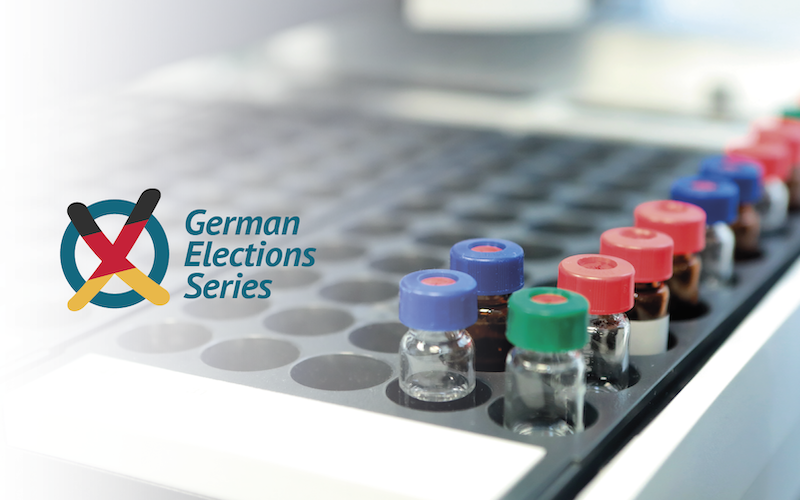This blog is part of a series by CGD and partnering institutions from Germany focused on presenting specific policy proposals for the next German government’s leadership on global development issues.
Many observers expect that Germany—as the second largest bilateral donor, and as others such as the UK take a step back—will now take a more proactive role in international development.
But would the German public support such increased commitment?
Support for international development assistance and cooperation has remained high with the German public, even during critical periods in recent years.
As coalition talks to form a new government continue, we explore this support and the basis for it, which is perhaps more fragile than it first seems.
Supportive, even when the going gets tough
Overall, popular support for development cooperation in Germany has remained stable and high over the last decade. This is in contrast to several other major donor countries such as the US and the UK.
The DEval Opinion Monitor for Development Policy explores citizens’ attitudes and preferences regarding development cooperation with rigorous analyses of media coverage, representative surveys, experimental studies and the analysis of existing survey data (e.g., from our colleagues from the Development Engagement Lab). This allows us to explore independent feedback from the public, and provide it to decision-makers in German development policy.
The evidence shows that the vast majority of the German public still expresses general support for assisting poorer countries in their attempts to overcome their development barriers at current or higher levels of financial commitment. Approximately 70 percent of respondents agreed that Germany should spend about 1 percent of its total government budget on development cooperation.
Whereas several other major donor countries such as the UK have seen major public campaigns around the sentiment that “charity begins at home”, Germany has not (yet) seen such coordinated campaigns. Also, all mainstream political parties continue to support development cooperation efforts. These may be reasons, why Germany has not seen a drop in general support of development cooperation so far.
This support remained even during two critical periods: the 2015 so-called “refugee crisis”—which saw Germany receive over one million first-time asylum applications—and the COVID-19 pandemic. Data from 2018 shows, that forced migration in 2015 and 2016 had no significant impact, and further analyses conducted in 2020 shows that a large majority of German citizens agreed that Germany should help poorer countries overcome the consequences of the pandemic. (Though there was only little support for using debt rescheduling for such purposes, which reflects attitudes and the debate around euro bonds in the context of the European financial crisis and its aftermath).
Regression analyses show that trust in the German government was a strong predictor of citizens’ attitudes toward global solidarity during the initial period of the COVID-19 crisis. Those respondents who had high levels of trust in the German government during the pandemic were also more likely to support poorer countries during the pandemic. This was in line with previous findings explaining differences in support for development cooperation. Also, in line with previous evidence, respondents who had more right-leaning political orientations were less likely to support development cooperation.
A fragile basis for strong support
Although these findings suggest a rather resilient support by the German population for development cooperation, more in-depth analyses unveil a potentially fragile basis of this support for several reasons.
First, exploring people’s beliefs and motivations towards global solidarity as a more complex phenomenon, reveals less clear-cut support for development cooperation.
The inclusion of other variables in the 2018 Deval Opinion Monitor, such as a citizen’s moral motivations for supporting development cooperation and their beliefs in its effectiveness, meant four groups could be identified.
Only around 15 percent of respondents were unequivocal “supporters” of development cooperation. Around one quarter were in support of development cooperation in principle and felt moral obligations towards the global South but had doubts about its effectiveness. We labelled them “sceptics”. Roughly one third of the population could be characterized as “undecideds” as they had no clear position towards development cooperation while around 30 percent were “opponents” of German engagement in development cooperation.
Second, levels of public knowledge and media coverage around development are low. This makes individual attitudes and beliefs potentially susceptible to change when new (and potentially false) information becomes more prominent.
As in many other countries, development policy does not rank among the top priorities of the German media and the German citizens. Not surprisingly, in-depth media analysis reveals little media coverage on development policy and related issues over recent years. Moreover, the vast majority of the population has little structural knowledge about the policy field. For example, people tend to overestimate the budget in relative terms as well as the level of poverty in the global South. They also have little knowledge about the goals of development cooperation as set out in the 2030 Agenda for Sustainable Development. Only about one third of the population reports having heard of the goals, with less than 10 percent being certain they know what they are about.
So, exposure to and absorption of information around international development is rather low, making support vulnerable to external information shocks and to biased and politicized arguments.
Still, several survey experiments of our latest opinion monitor (2021) reflect a nuanced picture of the population’s preferences about where resources should be allocated. Among different fragile contexts, for instance, people prefer to spend foreign aid where the government has low capacity to provide basic services. They are significantly less inclined to spend resources in fragile contexts with high levels of corruption or where the local government has little political legitimacy. This differentiation mirrors crucial challenges for diplomacy, defence and development cooperation in successfully coping with the latter contexts such as in Afghanistan or Mali.
Third, most of the German population still perceives the policy field as traditional development aid and assistance
Our analysis finds a somehow surprising disconnect between the issue of helping poor people in the global South to get out of misery and the global development agenda most visible in the 2030 Agenda on Sustainable Development. German citizens mostly refer to a traditional agenda of development assistance when asked about their attitudes for development cooperation, reflecting a disconnect with the current discourse within the development community.
Although concerns about global challenges such as climate change are high and there is increasing awareness regarding sustainable consumption, the broader public has—if at all—only recently connected such issues to the agenda of development cooperation.
This entails a danger of not being aware of new potentials and challenges for policy-makers in their attempts to transform cooperation with the global South towards a broader, mutual and more complex agenda, where traditional forms of assistance merge with measures for the provision of global public goods and joint efforts to overcome global challenges.
Overcoming challenges and consolidating support
On the one hand, the new German government has the advantage of building its development policy on a broad basis of public support. At the same time, however, a new government should also respond to the fragility of this support to not endanger the legitimacy of development cooperation
Based on our analysis, policy-makers should try to combine three arguments in their communication towards the broader public:
First, effective development cooperation is coherent with an enlightened self-interest for global good provision in climate change, democracy support, migration or security. This argument would help policy-makers to bridge traditional notions of development assistance with a more modern vision of development cooperation as one instrument to foster sustainable global development.
Second, policy-makers should also more openly communicate the risks of intervening in conflict-affected political contexts, even if there is a coherent approach including diplomacy, defence and development. This, however, requires overcoming the incentive to politically exploit failures of development cooperation in the domestic realm and instead embark on a more substantive and evidence-based learning culture.
Finally, while communicating success in development cooperation to the broader public is important, it is equally important to back the success story by independent and credible evidence from evaluation and research. Only independent and credible evidence can create a more trustful environment between those who decide and implement external policies and those who finance and legitimate such policies.
In times of increasing budget constraints due to other financial priorities—in the aftermath of the pandemic and needed investments in climate change policies, infrastructure and other domestic policy areas—a new German government should respond to these elements in order not to endanger a promising albeit fragile support for development cooperation and global solidarity.
Prof. Dr Jörg Faust is Director of the German Institute for Development Evaluation (DEval) and Chair of the OECD/DAC Network on Development Evaluation (EvalNet). Dr Martin Bruder is Head of Department for Civil Society and Human Rights at DEval.
Disclaimer
CGD blog posts reflect the views of the authors, drawing on prior research and experience in their areas of expertise. CGD is a nonpartisan, independent organization and does not take institutional positions.






